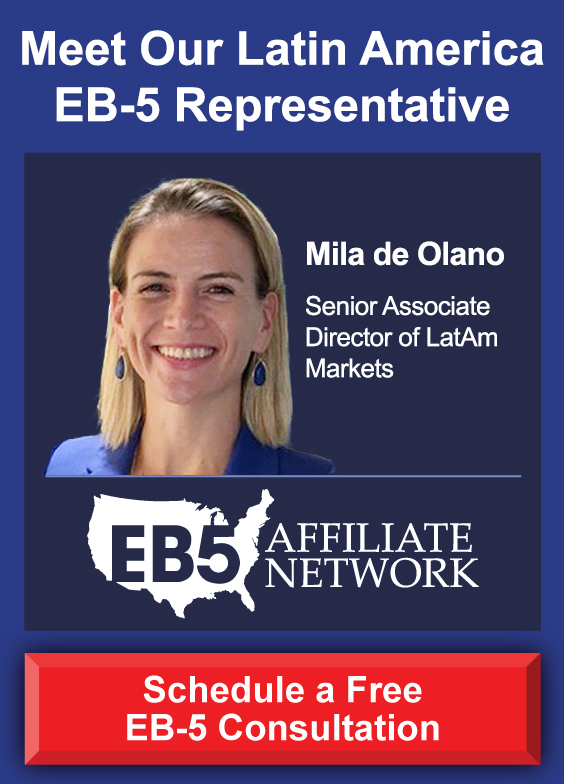As of August 24, 2015, the Financial Industry Regulation Authority (FINRA) has implemented Rule 2040, which prohibits members from making payments to unregistered broker-dealers within the United States. This poses several consequences for the EB-5 market, most notably increased oversight and further transparency regarding the payment of fees. However, the consensus is split among practitioners as to whether this rule represents a shift toward best practices. This article outlines potential ramifications of Rule 2040 for investors and investment professionals working in the EB-5 market.
Commissions and Securities Laws
Federal and state securities laws prohibit paying a commission to anyone not registered as a broker-dealer in the United States except under certain circumstances known as the finder exemption, a gray area that allows payment of fees to finders who connect potential investors with companies seeking capital. Companies and their directors who otherwise violate securities laws leave themselves open to sanctions.
The finder exemption covers a limited range of activities, such as cases where an agent of a commercial enterprise seeking capital, the securities issuer, introduces an investor to that enterprise. The finder must be a director or employee of the enterprise with duties other than raising capital, and his or her role in the transaction must be limited to making an introduction. For example, the finder must not take part in any negotiations between the two parties or in the sale of securities, and he or she must not be involved in the transfer of the investment amount such as by holding the funds in escrow for either party. The fee paid must additionally not be based on the success of the fundraising effort, only on the act of the initial introduction.
If a finder is found to have been involved in any of the above activities, both the finder and the securities issuer may face sanctions or other legal action. Those working with foreign investors through the EB-5 Program must also consider the laws of the investors’ countries of origin, which may also require that the issuer work through a registered intermediary.
Changes with FINRA Rule 2040
This rule applies to FINRA members, these being registered broker-dealers conducting transactions in the United States. While members were previously able to take advantage of the finder exemption detailed above, Rule 2040 prohibits them from paying any commissions or other fees to unregistered U.S. broker-dealers. However, of most interest to EB-5 practitioners is subsection 2040(c), which does allow members to pay commissions to a foreign finder provided his or her only involvement in the transaction is the initial introduction between parties, these being the foreign investor and the securities issuer.
To adhere to this regulation while paying a commission to a foreign finder, member firms must additionally ensure the following:
- Neither the finder nor the investor is a U.S. citizen, and the finder is not otherwise required to be registered as a broker-dealer in the United States.
- The payment does not violate relevant foreign laws, meaning the laws of the investor’s country of origin.
- The broker-dealer must agree in writing with the finder on the nature of their working relationship and the payment of fees, and the broker-dealer must document payments made to the finder and provide these records for inspection if necessary.
- The amount of commission or fees to be paid to the finder must be disclosed to the investor in writing, and he or she must acknowledge this arrangement in writing to the broker-dealer.
Under this rule, broker-dealers are thus allowed to pay foreign finders without violating U.S. securities laws or FINRA regulations.
Consequences for the EB-5 Market
Adhering to Rule 2040 fosters a market in which foreign finders refer investors to U.S. broker-dealers, and finders are paid according to terms disclosed to and agreed upon by investors. Such a market poses several benefits for EB-5 practitioners and investors alike.
Broker-dealers will be in compliance with national and international regulations.
EB-5 broker-dealers who have previously taken advantage of the Regulation S exemption, which allows for the sale or offer of securities outside the United States without registration, may have been in violation of the laws of the investor’s country of origin, creating a liability for both the securities issuer and the investor. Selling the security within the United States with the assistance of a foreign finder allows a broker-dealer to comply with U.S. securities regulations and avoid this issue.
As the EB-5 Program requires that the investment be made to a U.S. company to create jobs within the United States, selling the relevant securities in the United States under the guidelines of U.S. securities law is a reasonable step in that it allows investors to more easily document the legal sourcing and path of investment funds, of which proof is necessary when applying for the I-526 and I-829 residence petitions.
Investors will face less risk and be made aware of fees associated with the investment.
The EB-5 Program poses a substantial risk to investors even without taking into consideration the possibility of unethical practitioners. As permanent residence is not guaranteed under the program and the investment amount is required to be at risk throughout the application process, EB-5 investors face a considerable loss in the case of a denied application and must therefore conduct due diligence on their investment opportunities and work with experienced securities and immigration attorneys to ensure they comply with program requirements as well as legal guidelines.
The opportunity to work with experienced U.S. financial advisors in lieu of conducting an offshore transaction is a significant benefit for foreign investors, who might otherwise take unnecessary risks on the advice of salespeople in their own countries of origin, who often work for high fee incentives. Disclosure of all commissions for finders will further allow investors to make educated decisions and will therefore foster a more ethical and transparent EB-5 market overall.
Increased competition will result in better deals and fewer cases of fraud.
EB-5 investors often pay high brokerage fees, among the highest in the U.S. securities industry, without being made aware of the services received in return for those fees. This is a result of several factors, including communication barriers and unfamiliarity with U.S. legal and financial systems. Of interest to this discussion, however, is the current lack of transparency among broker-dealers working with foreign investors. Greater transparency as a result of compliance with Rule 2040 will create more competition in the market, as it will encourage investors to choose to work with proven professionals.
An improvement in service quality will result in an equal improvement in the quality of deals and investments in the EB-5 market, and allowing investors to conduct due diligence with full disclosure of any fees and commissions reduces the chances of fraud within this sector.
Although Rule 2040 applies only to FINRA members, it encourages a trend toward best practices in the EB-5 market. Further oversight of EB-5 transactions additionally creates a climate of transparency and a willingness to comply with both national and international regulations, decreasing liability for both securities issuers and investors. Rule 2040 represents an increasing desire to combat fraud and unethical behavior in the EB-5 market, and practitioners should take note of these changes as they strive to better serve investors and the EB-5 Program itself.










